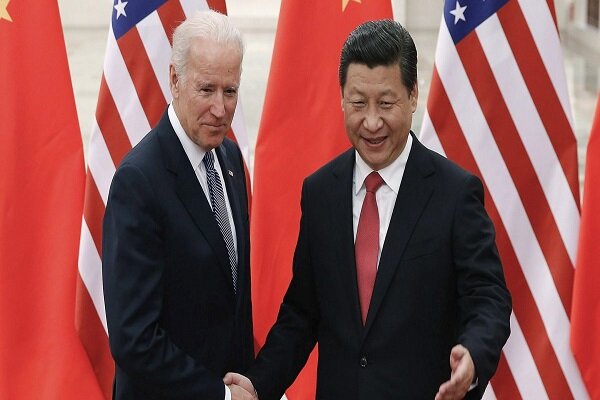U.S.-China quest for soft power

Soft power, arguably, for great powers is as significant as hard power. The tenet of soft power is based on attraction rather than coercion.
The history of international politics is a tangible testimony that hard power caused enduring wars, devastation and economic woes. Soft power, cheaper than hard power, winning the hearts and minds of the people, in a prevailing era of science and technology proves to be more instrumental in the construction of a soft image of the country. Joseph Nye, who coined the term soft power, argues that “It is the ability to get what you want through attraction rather than coercion or payments”.
To be fair, Nye replicated the soft power idea from China’s sixth century BC strategist Sun Tzu who in his renowned book “Art of War” accentuates the value of soft power saying that “The supreme art of war is to subdue the enemy without a war.”
“The best tactics is to take by strategy,” and “Those who win people’s hearts can win the world." Sun Tzu’s doctrine appears to be the key component in the manufacturing of Chain’s soft power. Meanwhile, great power competition between the U.S. and China has become a buzzword in the experts’ circle. A new cold war between the U.S. and China seems to be intensifying. Soft power is another crucial area where both powers will leave no stone unturned to supersede the other.
For rising China, to dominate the 21st-century soft power remains as important as hard power. China’s obsession with soft power has constantly been increasing. Unlike the U.S., China believes it would be a benign power, crafting consent rather than coercion in its foreign policy. Joshua Kurlantzick while sharing his empirical observation regarding the U.S. image in the post-9/11 period asserted that people in Australia and Thailand had a better image of China than that of the U.S. against the backdrop of the Bush Administration’s foreign policy in the post-9/11 world. China’s non-interference in the internal politics of other states invariably cements its soft image across the globe. Martin Jacques prognosticates that China’s culture will dominate Western cultural norms, gaining ascendency and superiority over others as each "civilization-state perceives the world order and international relations with its own history and culture".
Globalization enables Beijing to circulate its ideas and culture to reshape the world order. David Schambaugh states that China has made remarkable headway in economic development, using the robust economy as a soft power granting $50 billion for the Asian Infrastructure Investment Bank (AIIB), $41 billion for the New Development Bank, $40 billion for the Silk Road Economic last but not the least $25 billion for the Maritime Silk Road. Beijing is committed to investing $4.8 trillion in the Belt and Road Initiative (BRI). The U.S. and USSR, two great powers during the Cold War, collectively did not spend as much money across the world as China single-handedly spends today in BRI.
The book titled “Soft Power and the U.S. Foreign Policy Theoretical, Historical and Contemporary Perspective” written by Inderjeet Parmar and Michal Cox, in a fascinating chapter titled "The future of soft power in U.S. foreign policy" written by Joseph S. Nye, argues that in the last decade the U.S. has considerably lost its soft power. Public opinion poll demonstrates a rapid decline in the U.S. attractiveness in the Muslim world, Europe and Latin America.
In the war on terror, the U.S. remained engaged in attacking Iraq, Afghanistan, while China impressed the world with its exhilarating economic progress and eschewed interference in domestic affairs of other states that culminated in the rise of the latter's soft power and witnessed a rapid decline in the former’s. China’s statecrafts follow various means in the projection of soft power including self-restraint over controversial issues, reassuring China’s political discourse, promoting trade assistance and its culture. Joshua Kurlantzick in his fascinating book titled “Charm Offensive: How China’s Soft Power is Transforming the World” articulates that China’s charm offensive as soft power began in 2000 believing in desired stability and harmony with all its fourteen neighboring states. China's charm offensive revolves around “safeguarding peace, promoting development and enhancing cooperation, which is the common desire of all peoples, represents the irresistible historical trend.”
It is pertinent to mention here the peaceful rise of China is deliberately crafted in its political discourse as a soft power means. Scholars of China successfully developed the term “heping jueqi” or Peaceful Rise. The term “jueqi” or Peaceful Rise was first used by Zheng Bijian a renowned and senior adviser to the Chinese leadership, term peaceful rise soon materialized in Chinese leaders’ speeches. China’s phenomenal success in poverty reduction, exponential headway in artificial intelligence (AI), research and development, non-interference in other states’ internal politics resulted in buttressing of its soft power.
Realistically speaking, the U.S. somehow has an edge over China in the soft power realm, the former's democratic values, freedom of speech; educational institutions, Hollywood film industry and its culture and cuisine still attract and captivate the people. Beijing will have to improve the aforementioned areas to outstrip the U.S. in a soft power race.
China ostensibly has a bad image in the West. The U.S. and Western countries in a foreseeable future, by all means, will go for maligning China’s soft image by rubbishing its political system, debt trap policy under BRI, human rights violation, and laborers’ exploitation in African states. Presumably, the U.S.-China soft power competition is on the cards. Both powers will strive for soft power ascendency in the 21st century to perpetuate hegemony across the globe.
The writer is a Research Associate at India Study Centre, the Institute of Strategic Studies Islamabad (ISSI). He is also Ph.D. (IR) candidate at International Islamic University Islamabad (IIUI).
Leave a Comment